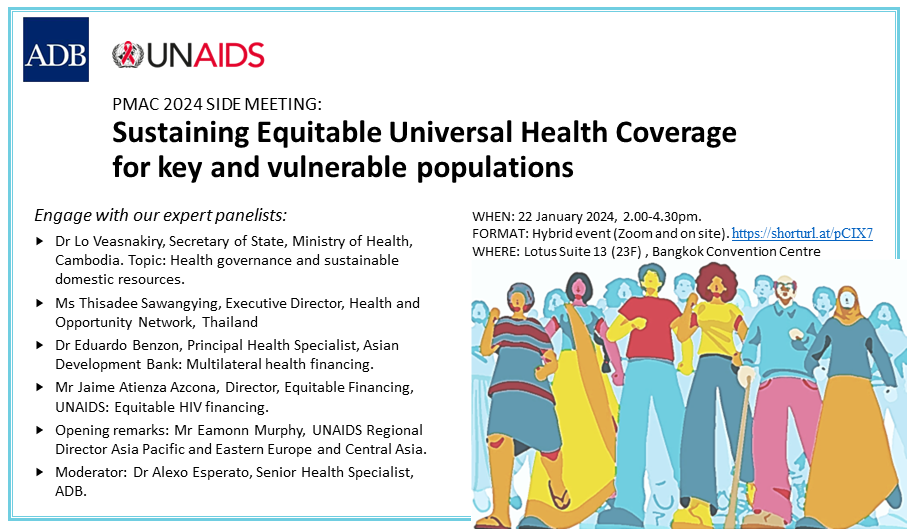Side Meetings
SMB315
Sustaining Equitable Universal Health Coverage for Key and Vulnerable Populations
22
Jan
- UNAIDS, ADB

Universal health coverage (UHC) envisages a future where all people and communities will have equal access to quality health services where and when they need them, without financial hardship. As such, health financing was deemed as one of the critical components in achieving the goal of UHC. But how health systems mobilize, accumulate, and allocate their funds to cover the health needs of people is a function that is anchored on the principles of equity and fairness.
A set of expert panelists will ask how - in the face of severe financial pressures - can all countries ensure equitable and sustainable access to health services by key and marginalized populations. Taking the example of the response to HIV, what is the potential for domestic resources to fully meet domestic needs?
What is the role and potential for multilateral financing mechanisms to augment domestic health budgets, support and implement innovations including in health infrastructure, and advance policy reforms to promote equity and sustainability?
How can countries meet their political commitments to increase the delivery of health services by community-led organisations, and improve their leadership in identifying, mobilising and utilising domestic resources?
Identify innovations and good practices to increase domestic resources for health and ensure the equitable and sustainable financing of Universal Health Coverage.
Understand how to optimise the role of multilateral financial mechanisms in global health.
Explore how to create space for communities to jointly deliver on the targets of the Global AIDS Strategy 2021-2026 and help countries meet national, regional and global commitments.

